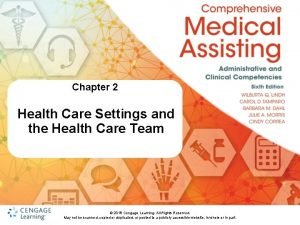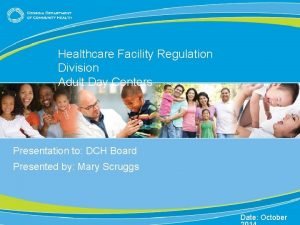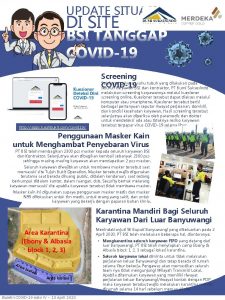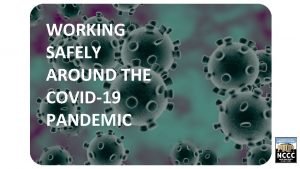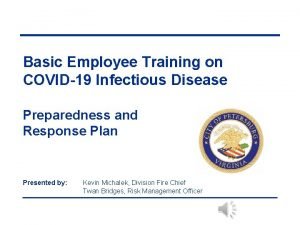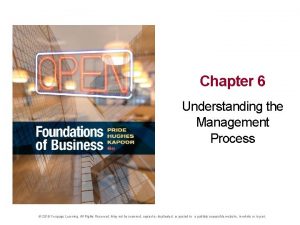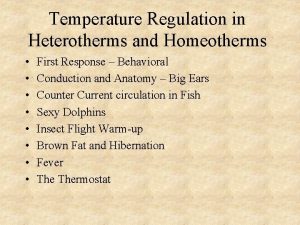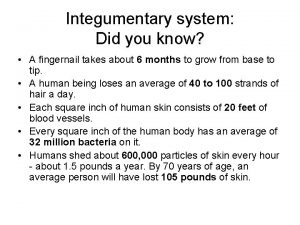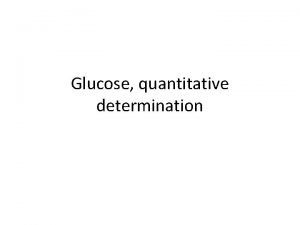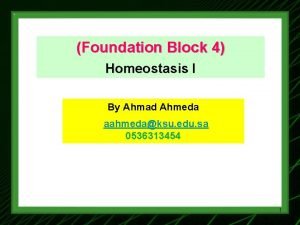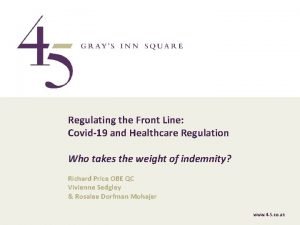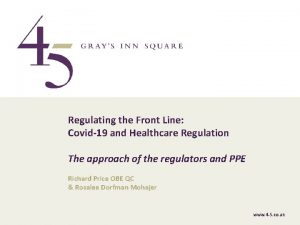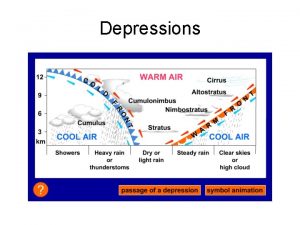Regulating the Front Line Covid19 and Healthcare Regulation












- Slides: 12

Regulating the Front Line: Covid-19 and Healthcare Regulation The Question of Legal Immunity Richard Price OBE QC & Rosalee Dorfman Mohajer www. 4 -5. co. uk

Article 2: THE QUESTION OF LEGAL IMMUNITY This is the second of three articles in this series on the medico-legal implications of Covid-19 and healthcare regulation. Richard Price OBE QC and Rosalee Dorfman Mohajer discuss the question of legal immunity for healthcare professionals. § What has been proposed? § What is the legal immunity in New York? § Why provide legal immunity? § How can I get involved in the debate? www. 4 -5. co. uk

What has been proposed? The Medical Defence Union (MDU) has called for a national debate on whether health care professionals should have immunity from civil liability for actions taken in patient care in respect of the Covid-19 pandemic. It did so via an article in The Guardian newspaper on 19 April 2020 and a subsequent press release, with the following headline: “MDU calls for national debate over protecting NHS from COVID-19 clinical negligence claims The Medical Defence Union says doctors should be spared from the stress and anxiety of medical negligence claims following the pandemic” In the Guardian article, the MDU explained that several states in the US, including New York, New Jersey and Michigan, have already adopted laws that provide healthcare professionals and hospitals with ‘immunity from civil liability for any injury or death alleged to have been sustained because of any acts or omissions undertaken in good faith’ during the crisis. www. 4 -5. co. uk

What is the legal immunity in New York? After declaring a state disaster emergency in early March, New York Governor Cuomo on 23 March 2020 issued Executive Order No. 202. 10. This Order provided that healthcare workers be immune from civil liability for negligence, save for gross negligence. In the spirit of this Executive Order, the New York Legislature amended the state’s Public Health Law § 3082 on 2 April 2020 (“the Act”). The Act retrospectively applied to acts and omissions that occurred on or after 7 March and will continue until the declaration of the state emergency expires. The Act is more extensive than the Executive Order as it provides immunity protection from criminal and civil liability and protects healthcare facilities, which includes nursing homes, voluntary organisations and a wider class of professionals. It covers professionals licensed or otherwise authorised by New York state law and those who provide healthcare services within the scope of the authority permitted by a COVID-19 emergency rule, which includes for example physicians and nurses licensed to practise outside of New York or without current registration, such as retirees. It also includes home care services workers. www. 4 -5. co. uk

What is the legal immunity in New York? The New York statute Public Health Law § 3082 states as follows: “ 1. Notwithstanding any law to the contrary, except as provided in subdivision two of this section, any health care facility or health care professional shall have immunity from any liability, civil or criminal, for any harm or damages alleged to have been sustained as a result of an act or omission in the course of arranging for or providing health care services, if: a) the health care facility or health care professional is arranging for or providing health care services pursuant to a COVID-19 emergency rule or otherwise in accordance with applicable law; b) the act or omission occurs in the course of arranging for or providing health care services and the treatment of the individual is impacted by the health care facility’s or health care professional’s decisions or activities in response to or as a result of the COVID-19 outbreak and in support of the state’s directives; and c) the health care facility or health care professional is arranging for or providing health care services in good faith…” 2. The immunity provided by subdivision one of this section shall not apply if the harm or damages were caused by an act or omission constituting willful or intentional criminal misconduct, gross negligence, reckless misconduct, or intentional infliction of harm by the health care facility or health care professional providing health care services, provided, however, that acts, omissions or decisions resulting from a resource or staffing shortage shall not be considered to be willful or intentional criminal misconduct, gross negligence, reckless misconduct, or intentional infliction of harm. ” www. 4 -5. co. uk

What is the legal immunity in New York? The above three conditions in § 3082[1][a]-[c] must be satisfied in order for the legal immunity to apply. The first requirement is that the care is arranged or provided pursuant to a COVID-19 emergency rule or otherwise in accordance with applicable law. A COVID-19 emergency rule is defined in § 3081[8] and in summary is any executive order, declaration, directive or other state or federal authorisation, policy statement, rule-making or federal law that waives standards of care. The second requirement, as above, clarifies that the immunity will apply to acts or omissions taken in response to or as a result of the COVID-19 outbreak and is not limited to the care of patients with COVID-19. The third requirement is that the care must be delivered in good faith. This is in line with the exception to the immunity of gross negligence or the equivalent provisions, as described in § 3082[2]. www. 4 -5. co. uk

Why provide legal immunity? In an article for the New York Law Journal Peter Kolbert and Caryn Lilling argue that the above actions by the New York Governor and Legislature should serve as a model for legislation to be implement across the US. They submit that to promote public health, safety and welfare, hospitals and medical providers need to make treatment, staffing or resource allocation decisions during the crisis ‘without concerns about the specter of future litigation. ’ The MDU stated in its press release that, in the US and UK, doctors in both primary and secondary care being asked to work in areas outside their expertise and where they may not have the most up-to-date knowledge. Retired doctors have been re-registered and asked to return to work and the final year medical students are starting work early. Routine treatments and surgeries are being delayed to cope with the influx of coronavirus patients. The cost of medical negligence in the NHS has climbed steeply. As of 31 March 2019, NHS Resolution the accumulated claims it indemnified amounted to £ 83. 4 billion. www. 4 -5. co. uk

Why provide legal immunity? In the press release, Doctor Christine Tomkins, MDU chief executive, warned that the indemnities could still cost the UK large sums of money and expose those involved in claims to ‘extremely distressing’ negligence allegations. Doctor Tomkins’ said: “We are concerned that medical liability claims will come along after public memory of the sacrifices made by healthcare workers have been forgotten, and the circumstances of the pandemic which requires people to work outside their speciality and beyond their experience will also be forgotten. NHS Resolution will handle and pay claims as doctors and other healthcare professionals are state indemnified for the work they are doing treating patients with COVID-19, and providing other essential NHS services in response to the pandemic. However, doctors will still be involved in claims and we know that facing allegations of negligence can be extremely distressing for the practitioners involved. We are not aware of any claims yet, but we are already aware of complaints arising from COVID-19 and its effect on other services…” www. 4 -5. co. uk

Why provide legal immunity? “Our members are working under tremendous pressure, taking difficult decisions about patient care in very challenging conditions, and we want them to be able to do so without fear they will be unfairly judged in the months and years ahead. Doctors must be accountable for their actions but the GMC has already recognised that different considerations will need to be applied when investigating complaints. We believe there needs to be a public debate about whether it is right to sue the NHS the patient care around the COVID-19 pandemic. Any compensation paid will be a drain on NHS resources and disastrous for the morale of staff who are acting so selflessly and courageously. Claims will also place an additional burden on taxpayers, who will be facing all the economic consequences of the pandemic. It would be better to allow the NHS to focus its time, efforts and financial resources on recovering from the pandemic. ” www. 4 -5. co. uk

How can I get involved in the debate? Many people will wish to be involved in this debate. This is a topic which will be of special interest to the NHS, all health and care regulators and their registrants, and all barristers and solicitors involved in the regulation of health and care and medical negligence claims involving the NHS, doctors, nurses and midwives. We hope to begin this important debate, by inviting comments from anyone reading this article about the MDU proposal and the legal immunity in New York, whether they are for or against it. No doubt there will be views on both sides, but those views must be considered calmly and responsibly for the interests of everyone involved. Please forward any comments or suggestions that you would like to make about the MDU proposal, or any other aspect of this article, to clerks@4 -5. co. uk. Alternatively, share your thoughts with us on Twitter @45 GRAYSINNSQ or Linked. In. Yesterday’s article discussed the guidance from the regulators and the emerging concerns about PPE. The final article in this series will look at the position regarding indemnities. www. 4 -5. co. uk

Authors Richard Price OBE QC Richard is a Silk specialising in professional regulation and discipline, who was a Legal Assessor to the Fitness to Practice Panels of the Medical Practitioners Tribunal Service for many years, and who acts for other professional regulators in disciplinary and regulatory matters. Rosalee Dorfman Mohajer Rosalee is a junior barrister practising in the professional regulation and discipline of health and care professionals. This article is provided free of charge for information purposes only. Every reasonable effort is made to ensure the information is accurate and up to date, but no responsibility for its accuracy, or for any consequences of relying on it, is assumed by the writers or by Chambers as a whole. The information and commentary do not, and are not intended to, amount to legal advice to any person. You are strongly advised to obtain case specific advice from a lawyer; please contact the clerking team at 4 -5 Gray’s Inn Square (clerks@4 -5. co. uk) who will be glad to assist. www. 4 -5. co. uk

Putting people and client service first 4 -5 Gray’s Inn Square Gray’s Inn London WC 1 R 5 AH DX No 1029 LDE clerks@4 -5. co. uk Tel +44 (0)20 7404 5252 www. 4 -5. co. uk
 Healthcare and the healthcare team chapter 2
Healthcare and the healthcare team chapter 2 Healthcare and the healthcare team chapter 2
Healthcare and the healthcare team chapter 2 Ga healthcare facility regulation division
Ga healthcare facility regulation division Http//apps.tujuhbukit.com/covid19
Http//apps.tujuhbukit.com/covid19 Do if you covid19
Do if you covid19 Covid19 athome rapid what know
Covid19 athome rapid what know What do if test positive covid19
What do if test positive covid19 Vaksin covid19
Vaksin covid19 Chapter 6 understanding the management process
Chapter 6 understanding the management process Regulating body temperature
Regulating body temperature Regulating body temperature
Regulating body temperature Ogtt curve
Ogtt curve Regulating body temperature
Regulating body temperature
